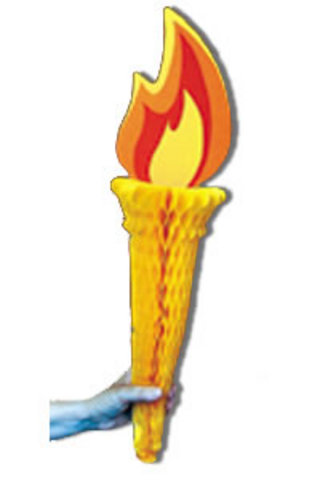Torch guards recruited from paramilitary units, China says
 Beijing - The blue tracksuit-clad Chinese guards who attracted torch relay guards that have attracted attention in Olympic parades in London, Paris and other cities were recruited from the paramilitary police, state media said on Wednesday.
Beijing - The blue tracksuit-clad Chinese guards who attracted torch relay guards that have attracted attention in Olympic parades in London, Paris and other cities were recruited from the paramilitary police, state media said on Wednesday.
The 30 elite guards for international legs of the torch relay and 50 more for domestic legs underwent special training after they were selected from the People's Armed Police, the Global Times and other media said.
The guards had to prove that they could run 10 kilometres in mountainous terrain every day and show their ability to learn etiquette and foreign languages, the newspaper said.
Different members of the overseas team learned basic English, Spanish, German, French and Japanese for use on some international legs of the relay, it said.
The guards must also be able to drive cars and ride motorcycles, and some of them must run up to 50 kilometres a day, the newspaper quoted team leader Zhao Si as saying.
"The escort team's duty is to protect the torch and the accompanying relay event," Zhao said.
"To ensure that the torch will not be extinguished for unexpected reason, they must remain on 24-hour duty 24," he said.
The guards attracted controversy on Monday after Sebastian Coe, the head of London Olympic Committee, said he was shoved three times by the guards, who he called "thugs," during the London relay on Sunday.
Australian Prime Minister Kevin Rudd, who began a visit to China on Wednesday, on Sunday said he would not allow the Chinese guards to protect the torch during a leg in Canberra on April 24.
"We will not be having Chinese security forces or Chinese security services providing security for the torch when it is in Australia," Rudd said at a joint press conference with British Prime Minister Gordon Brown in London.
Members of the International Olympic Committee (IOC) said Wednesday that they had ruled out cutting short the protest-plagued international section of the torch relay.
"From my point of view, we should not stop," said Australian IOC member, Kevan Gosper. "It would send the wrong signal."
Mario Vazquez Rana, president of the Association of National Olympic Committees, said after sharing dinner Tuesday night with IOC president Jacques Rogge that Rogge was "100-per-cent convinced" not to make any changes to the relay. (dpa)